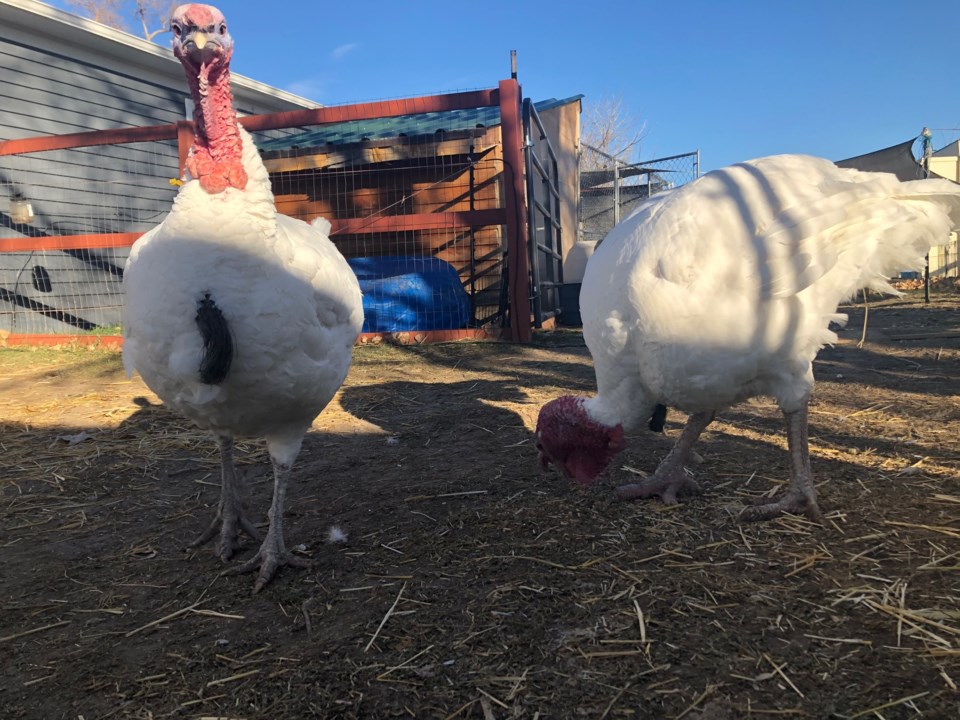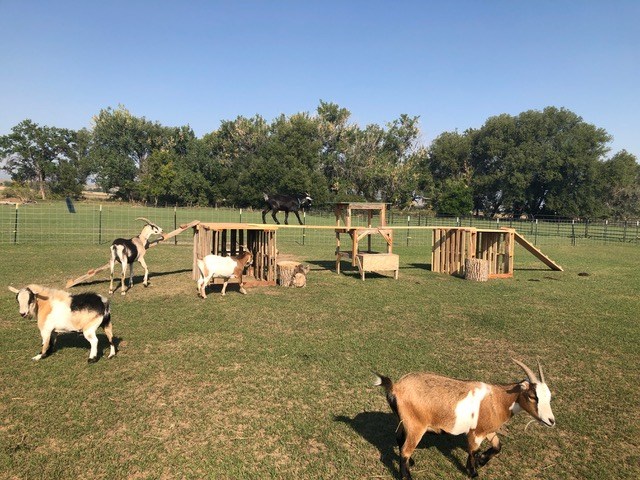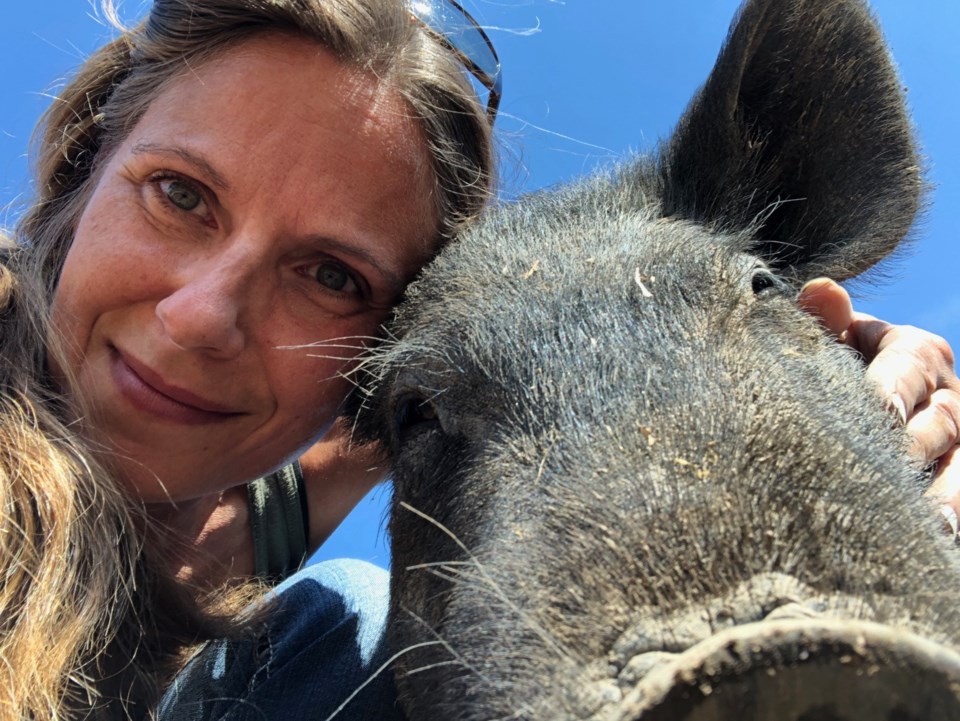Alpacas, pigs and goats, oh my.
The Good Life Refuge’s 5-acre farm off 95th Street and Colo. 66 is home to 60 animals spanning 12 species.
In non-COVID times, the community would get to meet the residents through tours of the nonprofit farm animal sanctuary. But those tours have halted during the pandemic, with the exception of “kindness tours” for up to 10 people and virtual treks through the property.
Virtual tours haven’t served as a substitute for connecting in-person so, in an effort to raise awareness, the Good Life on Feb. 21 will launch a new way to get to know the animals. Planned for the third Sunday of each month, Sunday Stories with The Founder will be streamed on the Good Life’s Facebook page.
“Usually our tours have been the connecting part of the community. So I’m like, maybe we can highlight an animal once a month. How the animal came here, what it’s life was before at least from what we know, how their life is here at the sanctuary and a little bit of their perks,” said Nicole Brecht, founder and executive director of the Good Life.
Brecht will share stories of animals such as Amira, a goat who was saved by community donations and fundraising after the discovery of a 7-pound tumor led to a mastectomy that cost a majority of the sanctuary’s monthly budget, she said.
The refuge on Sunday also will be getting in the spirit of Valentine’s Day with a “Show Your Love” virtual tour and silent auction. Registration is required for the free event that starts at 2 p.m. A Zoom link will be provided to attendees following registration.
Brecht wants the community to know the refuge’s operations didn’t stop with the arrival of the pandemic.
A survey done by the sanctuary in partnership with the University of Colorado Boulder, found that 87% of respondents ages 18 to 35 did not know what an animal sanctuary is or why they exist, Brecht said.
That is why connecting with the community is so important, she said, especially with the lack of in-person contact because of the pandemic.
Less than 3 years old, the refuge for abused and at-risk farm animals has been hit hard financially because of COVID, Brecht said. n compa
“We’re solely relying on donations. I’m just trying to get the word out that we’re here and I always try to have the community somehow involved in us,” she said.
Community donations have helped save the lives of multiple animals on the farm, Brecht said. Donations have helped pay for the intake of animals like Sophia, a 750-pound pig whose special needs would have busted the Good Life’s budget, Brecht said.
 Tom and Ankara, the two resident turkeys at the Good Life Refuge. (Courtesy photo)
Tom and Ankara, the two resident turkeys at the Good Life Refuge. (Courtesy photo)“There’s a lot of grassroots organizations, some have wonderful ideas but it’s been really, really difficult for them to create deeper relationships in a Zoom world,” he said.
Chris Barge, vice president of communications and engagement for the Community Foundation Boulder County, said local nonprofits have risen to the challenges posed by the pandemic.
"This pandemic continues to test all of us. Our nonprofit grantees in Longmont and across Boulder County have stepped up as more and more of us have come to rely on their services. At the same time, these organizations have experienced intense financial strain," he said. Now, more than ever, they rely on those of us who are faring relatively well to dig deep and share our prosperity with others.”
Despite, or perhaps because of, the pandemic, Hozempa said donations to nonprofit organizations were higher than expected last year.
“A lot of people restricted their travel, for obvious reasons, they restricted purchasing other things so they’ve actually had this ability to make donations,” he said.
That unexpected boost in giving was seen nationwide. The Nonprofit Times in October reported that charitable giving increased by almost 7.5% during the first half of 2020, compared to the first half of 2019, based on data in the Fundraising Effectiveness Project’s 2020 Second Quarter Report.
Hozempa is optimistic about the future, saying that as the economy recovers from the pandemic, so will opportunities for nonprofits.
The Good Life offers multiple ways for the community to donate, which is the most sustainable way to help make a difference on the farm, Brecht said. Through its website, people can sponsor an animal, give to the Compassion Fund, or set up regular donations through a monthly membership.
Those who can’t afford to donate can still get involved.
“There are so many ways to help while I’m striving to get the financial stability done. Volunteers, I love my volunteers. I could not do this without them. Right now we’re short staffed on Monday, Tuesday and Wednesday,” Brecht said, adding more volunteers might give her one of seven days or allow her to “focus on the nonprofit business perspective.” Having people volunteer is also a win for the animals, she said.
“For me, as a caretaker, I think it is very important that our animals are socialized to some extent because we have to interact with them on a daily basis. If it’s the feeding, if it’s the treatment, it’s just a lot easier to handle an animal that’s accustomed to humans when we do have to do care,” Brecht said.
 Goats roam at the Good Life Refuge in Longmont.(Courtesy photo)
Goats roam at the Good Life Refuge in Longmont.(Courtesy photo)
